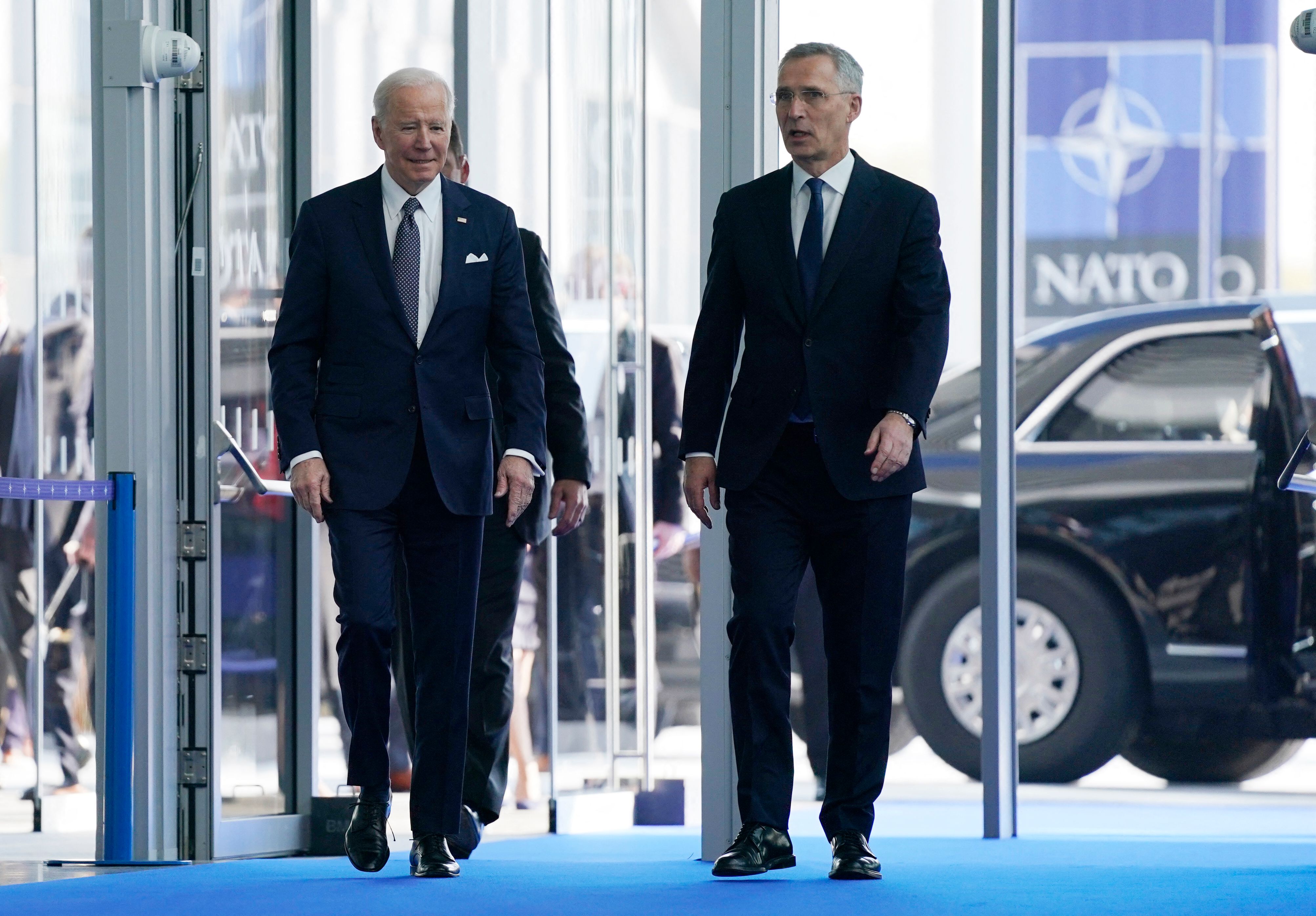Biden’s Role in NATO

Biden nato – President Biden has consistently emphasized the paramount importance of NATO as a cornerstone of global security and collective defense. He views NATO as a vital alliance that has played a crucial role in maintaining peace and stability in Europe for over seven decades.
Biden’s initiatives and policies regarding NATO have been geared towards strengthening the alliance’s unity, cohesion, and effectiveness. He has prioritized consultations and coordination with NATO allies, recognizing the importance of collective decision-making and a shared vision for the future of the alliance.
Strengthening NATO’s Unity and Cohesion, Biden nato
Biden has undertaken several initiatives aimed at fostering greater unity and cohesion within NATO. He has emphasized the importance of open dialogue, regular consultations, and joint exercises to enhance interoperability and coordination among member states.
Biden has also stressed the need for a collective response to emerging security challenges, including cyber threats, hybrid warfare, and disinformation campaigns. He has called for increased information sharing, joint threat assessments, and coordinated cyber defense mechanisms to strengthen NATO’s collective resilience.
NATO’s Response to the Ukraine Conflict: Biden Nato

NATO has strongly condemned Russia’s invasion of Ukraine and has imposed severe sanctions on Russia. NATO has also increased its military presence in Eastern Europe and has provided military assistance to Ukraine.
The conflict in Ukraine has posed significant challenges for NATO. NATO must balance its commitment to defending its members with the need to avoid a wider conflict with Russia. NATO must also coordinate its response with its partners, including the European Union and the United States.
The conflict in Ukraine has had a significant impact on NATO’s unity. Some NATO members, such as Poland and the Baltic states, have called for a more robust response to Russia’s aggression. Other NATO members, such as Germany and France, have been more cautious, fearing that a wider conflict with Russia could escalate into a nuclear war.
The conflict in Ukraine has also raised questions about NATO’s future role. Some experts believe that the conflict has weakened NATO and that the alliance will need to adapt to a new era of great power competition. Others believe that the conflict has strengthened NATO and that the alliance will play an increasingly important role in the future.
Challenges Faced by NATO
NATO faces a number of challenges in responding to the Ukraine conflict. One challenge is the need to balance its commitment to defending its members with the need to avoid a wider conflict with Russia. Another challenge is the need to coordinate its response with its partners, including the European Union and the United States. Finally, NATO must deal with the fact that some of its members have different views on how to respond to the conflict.
Impact on NATO’s Unity
The conflict in Ukraine has had a significant impact on NATO’s unity. Some NATO members, such as Poland and the Baltic states, have called for a more robust response to Russia’s aggression. Other NATO members, such as Germany and France, have been more cautious, fearing that a wider conflict with Russia could escalate into a nuclear war.
Future of NATO
The conflict in Ukraine has raised questions about NATO’s future role. Some experts believe that the conflict has weakened NATO and that the alliance will need to adapt to a new era of great power competition. Others believe that the conflict has strengthened NATO and that the alliance will play an increasingly important role in the future.
Biden’s recent NATO summit attendance sparked discussions on global security. For more on his foreign policy initiatives, visit joe biden news. Meanwhile, NATO’s commitment to collective defense remains a cornerstone of Biden’s security strategy.
Biden’s recent statements on NATO have sparked a lively debate. The alliance, founded in 1949, has been a cornerstone of Western security for decades. However, as the world has changed, so too has the role of NATO. Biden’s comments suggest that he believes the alliance needs to adapt to meet the challenges of the 21st century, including terrorism and cyber threats.
It remains to be seen how NATO will evolve under Biden’s leadership, but his remarks indicate that he is committed to the alliance and believes it has a vital role to play in the years to come.